![]()
![]()

Asia-Pacific Economic Cooperation (APEC)
Description: Asia-Pacific Economic Cooperation (APEC) is a forum for 21 Pacific Rim countries (formally Member Economies) that seeks to promote free trade and economic cooperation throughout the Asia-Pacific region.
Description: Consumers International (CI) is the world federation of consumer groups that, working together with its members, serves as the only independent and authoritative global voice for consumers.With over 220 member organisations in 115 countries, CI is building a powerful international movement to help protect and empower consumers everywhere.
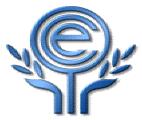 Economic Cooperation Organization (ECO)
Economic Cooperation Organization (ECO)
Description: The Economic Cooperation Organization (ECO) is an intergovernmental organization involving seven Asian and three Eurasian nations, part of the South-central Asian Union. It provides a platform to discuss ways to improve development and promote trade, and investment opportunities.
![]() Eurasian Economic Community (EAEC)
Eurasian Economic Community (EAEC)
Description: The Eurasian Economic Community (EAEC or EurAsEC) originated from the Commonwealth of Independent States (CIS) customs union between Belarus, Russia and Kazakhstan on 29 March 1996. The Treaty on the establishment of the Eurasian Economic Community was signed on 10 October 2000, in Kazakhstan's capital Astana by Presidents Alexander Lukashenko of Belarus, Nursultan Nazarbayev of Kazakhstan, Askar Akayev of Kyrgyzstan, Vladimir Putin of Russia, and Emomali Rakhmonov of Tajikistan. On 7 October 2005 it was decided between the member states that Uzbekistan would join. Freedom of movement is implemented among the members (no visa requirements).Common Economic Space was launched on 1 January 2010.
 Eurasian Patent Organization (EAPO)
Eurasian Patent Organization (EAPO)
Description: The Eurasian Patent Organization (EAPO) is a regional organization set up by the Eurasian Patent Convention (EAPC). Its task is to grant Eurasian patents.
 European Atomic Energy Community (EU EURATOM)
European Atomic Energy Community (EU EURATOM)
Description: The European Atomic Energy Community (EAEC or Euratom) is an international organisation which is legally distinct from the European Union (EU), but has the same membership, and is governed by the EU's institutions. The purposes of Euratom are to create a specialist market for nuclear power and distribute it through the Community and to develop nuclear energy and sell surplus to non-Community States.
 European Bank for Reconstruction and Development (EBRD)
European Bank for Reconstruction and Development (EBRD)
Description: European Bank for Reconstruction and Development (EBRD) uses the tools of investment to help build market economies and democracies in 30 countries from central Europe to central Asia. Its mission was to support the formerly communist countries in the process of establishing their private sectors.
 European Free Trade Association (EU EFTA)
European Free Trade Association (EU EFTA)
Description: The European Free Trade Association (or EFTA) is a free trade organisation between four European countries that operates parallel to, and is linked to, the European Union (EU). Today's EFTA members are Liechtenstein, Iceland, Norway, and Switzerland—the latter two being founding members.
Description: Eurostat is a Directorate-General of the European Commission located in Luxembourg. Its main responsibilities are to provide statistical information to the institutions of the European Union (EU) and to promote the harmonisation of statistical methods across its member states and candidates for accession as well as EFTA countries.
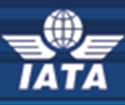 International Air Transport Association (IATA)
International Air Transport Association (IATA)
Description: IATA is an international trade body, created over 60 years ago by a group of airlines. Today, IATA represents some 240 airlines comprising 84% of total air traffic. The organization also represents, leads and serves the airline industry in general.
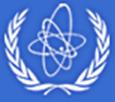 International Atomic Energy Agency (IAEA)
International Atomic Energy Agency (IAEA)
Description: The International Atomic Energy Agency (IAEA) is an international organization that seeks to promote the peaceful use of nuclear energy, and to inhibit its use for any military purpose, including nuclear weapons.
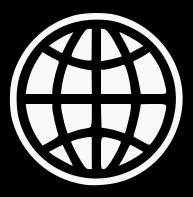 International Bank for Reconstruction and Development (IBRD) - World Bank Group
International Bank for Reconstruction and Development (IBRD) - World Bank Group
Description: The International Bank for Reconstruction and Development (IBRD) aims to reduce poverty in middle-income and creditworthy poorer countries by promoting sustainable development through loans, guarantees, risk management products, and analytical and advisory services. Established in 1944 as the original institution of the World Bank Group, IBRD is structured like a cooperative that is owned and operated for the benefit of its 188 member countries.
 International Chamber of Commerce (ICC)
International Chamber of Commerce (ICC)
Description: ICC provides a forum for businesses and other organizations to examine and better comprehend the nature and significance of the major shifts taking place in the world economy. We also offer an influential and respected channel for supplying business leadership to help governments manage those shifts in a collaborative manner for the benefit of the world economy as a whole.
 International Energy Agency (IEA)
International Energy Agency (IEA)
Description: The IEA is an autonomous organisation which works to ensure reliable, affordable and clean energy for its 28 member countries and beyond. The IEA's four main areas of focus are: energy security, economic development, environmental awareness, and engagement worldwide.
 International Finance Corporation (IFC) - World Bank Group
International Finance Corporation (IFC) - World Bank Group
Description: IFC, a member of the World Bank Group, is the largest global development institution focused exclusively on the private sector in developing countries. Established in 1956, IFC is owned by 184 member countries, a group that collectively determines our policies. Our work in more than a 100 developing countries allows companies and financial institutions in emerging markets to create jobs, generate tax revenues, improve corporate governance and environmental performance, and contribute to their local communities.
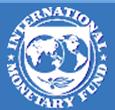 International Monetary Fund (IMF)
International Monetary Fund (IMF)
Description: The International Monetary Fund (IMF) is an organization of 188 countries, working to foster global monetary cooperation, secure financial stability, facilitate international trade, promote high employment and sustainable economic growth, and reduce poverty around the world.
 International Trade Centre (ITC)
International Trade Centre (ITC)
Description: ITC's mission is to enable small business export success in developing and transition-economy countries, by providing, with partners, sustainable and inclusive development solutions to the private sector, trade support institutions and policymakers.
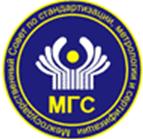 Interstate Council for Standardization, Metrology and Certification (EASC)
Interstate Council for Standardization, Metrology and Certification (EASC)
Description: The Interstate Council for Standardization, Metrology and Certification of the Commonwealth of Independence States (CIS) is the CIS Intergovernmental body for formulation and carrying out of coordinated policy in the field of standardization, metrology and certification. The Interstate Council for Standardization, Metrology and Certification of the Commonwealth of Independence States (CIS) is the CIS Intergovernmental body for formulation and carrying out of coordinated policy in the field of standardization, metrology and certification.
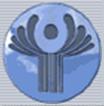 Interstate Statistical Committee of Independent States (ISCIS)
Interstate Statistical Committee of Independent States (ISCIS)
Description: The Interstate Statistical Committee of the Commonwealth of Independent States (hereinafter - CIS Statcommittee) is the interstate body acting in the framework of the Commonwealth of Independent States for the purpose of coordinating the activities of national statistical services, promoting the organization of information exchange, analysis of socio-economic development of the states and elaborating common recommendations in the field of statistics.
 Multilateral Investment Guarantee Agency (MIGA) - World Bank Group
Multilateral Investment Guarantee Agency (MIGA) - World Bank Group
Description: MIGA is a member of the World Bank Group. Its mission is to promote foreign direct investment (FDI) into developing countries to help support economic growth, reduce poverty, and improve people's lives.
 Nuclear Energy Agency (NEA) - OECD
Nuclear Energy Agency (NEA) - OECD
Description: The Nuclear Energy Agency (NEA) is a specialised agency within the Organisation for Economic Co-operation and Development (OECD), an intergovernmental organisation of industrialised countries based in Paris, France. The NEA mission is to assist its member countries in maintaining and further developing, through international co-operation, the scientific, technological and legal bases required for a safe, environmentally friendly and economical use of nuclear energy for peaceful purposes. To provide authoritative assessments and to forge common understandings on key issues as input to government decisions on nuclear energy policy and to broader OECD policy analyses in areas such as energy and sustainable development.
 Organisation for Economic Co-operation and Development (OECD)
Organisation for Economic Co-operation and Development (OECD)
Description: The mission of the Organisation for Economic Co-operation and Development (OECD) is to promote policies that will improve the economic and social well-being of people around the world. The OECD provides a forum in which governments can work together to share experiences and seek solutions to common problems. We work with governments to understand what drives economic, social and environmental change. We measure productivity and global flows of trade and investment. We analyse and compare data to predict future trends. We set international standards on a wide range of things, from agriculture and tax to the safety of chemicals.
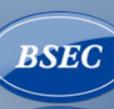 Organization of the Black Sea Economic Cooperation (BSEC)
Organization of the Black Sea Economic Cooperation (BSEC)
Description: The Black Sea Trade and Development Bank (BSTDB) is an international financial institution that was formed 24 January 1997. Supports economic development and regional cooperation by providing trade and project financing, guarantees, and equity for development projects supporting both public and private enterprises in its member countries. Objectives of the bank include promoting regional trade links, cross country projects, foreign direct investment, supporting activities that contribute to sustainable development, with an emphasis on the generation of employment in the member countries, ensuring that each operation is economically and financially sound and contributes to the development of a market orientation.
 Organization of the Petroleum Exporting Countries (OPEC)
Organization of the Petroleum Exporting Countries (OPEC)
Description: OPEC is a permanent intergovernmental organization of 12 oil-exporting developing nations that coordinates and unifies the petroleum policies of its Member Countries.
 Research fund for Coal and Steel (EU RFCS)
Research fund for Coal and Steel (EU RFCS)
Description: The RFCS supports research projects in coal and steel sectors. These projects cover: production processes; application, utilisation and conversion of resources; safety at work; environmental protection and reducing CO2 emissions from coal use and steel production.
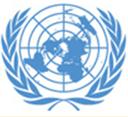 UN Commission on International Trade Law (UNCITRAL)
UN Commission on International Trade Law (UNCITRAL)
Description: The core legal body of the United Nations system in the field of international trade law. A legal body with universal membership specializing in commercial law reform worldwide for over 40 years. UNCITRAL's business is the modernization and harmonization of rules on international business.
 UN Conference On Trade and Development (UNCTAD)
UN Conference On Trade and Development (UNCTAD)
Description: Established in 1964, UNCTAD promotes the development-friendly integration of developing countries into the world economy. UNCTAD has progressively evolved into an authoritative knowledge-based institution whose work aims to help shape current policy debates and thinking on development, with a particular focus on ensuring that domestic policies and international action are mutually supportive in bringing about sustainable development.
 UN Economic and Social Commission for Western Asia (UN ESCWA)
UN Economic and Social Commission for Western Asia (UN ESCWA)
Description: The Economic Commission for Western Asia (ECWA) was established on 9 August 1973 pursuant to the Economic and Social Council’s resolution 1818 (LV). The purpose of setting up the Commission was to raise the level of economic activity in member countries and strengthen cooperation among them. It was also intended to meet the need of the countries in Western Asia for the services of a regional economic commission to promote the development efforts in the region.
 UN Economic and Social Commission for Asia and the Pacific (UN ESCAP)
UN Economic and Social Commission for Asia and the Pacific (UN ESCAP)
Description: The United Nations Economic and Social Commission for Asia and the Pacific (ESCAP) is the regional development arm of the United Nations for the Asia-Pacific region. Made up of 62 member States, with a geographical scope that stretches from Turkey in the west to the Pacific island nation of Kiribati in the east, and from the Russian Federation in the north to New Zealand in the south. Established in 1947 with its headquarters in Bangkok, Thailand, ESCAP works to overcome some of the region’s greatest challenges by providing results oriented projects, technical assistance and capacity building to member States in the following areas: Macroeconomic Policy and Development, Trade and Investment, Transport, Social Development, Environment and Sustainable Development, Information and Communications Technology and Disaster Risk Reduction, Statistics, Sub-regional activities for development.
 UN Economic Comission for Africa (UNECA)
UN Economic Comission for Africa (UNECA)
Description: The United Nations Economic Commission for Africa (UNECA or ECA) was established in 1958 by the United Nations Economic and Social Council to encourage economic cooperation among its member states (the nations of the African continent)[2] following a recommendation of the United Nations General Assembly.
 UN Economic Commission for Europe (UNECE)
UN Economic Commission for Europe (UNECE)
Description: UNECE's major aim is to promote pan-European economic integration. To do so, it brings together 56 countries located in the European Union, non-EU Western and Eastern Europe, South-East Europe and Commonwealth of Independent States (CIS) and North America. All these countries dialogue and cooperate under the aegis of UNECE on economic and sectoral issues.
 UN Economic Commission for Latin America and the Caribbean (ECLAC)
UN Economic Commission for Latin America and the Caribbean (ECLAC)
Description: The United Nations Economic Commission for Latin America and the Caribbean (UNECLAC or ECLAC) was established in 1948 (then as the UN Economic Commission for Latin America, or UNECLA) to encourage economic cooperation among its member states. In 1984, a resolution was passed to include the countries of the Caribbean in the name. It is one of five regional commissions under the administrative direction of United Nations headquarters. The ECLAC has 44 member States and eight non-independent territories in the Caribbean, and reports to the UN Economic and Social Council (ECOSOC). As well as countries in Latin America and the Caribbean, it includes Canada, France, Germany, the Netherlands, Portugal, Spain, Italy, the United Kingdom, the United States, Japan and South Korea.
 UN Food and Agriculture Organization of the United Nations (UN FAO)
UN Food and Agriculture Organization of the United Nations (UN FAO)
Description: The Food and Agriculture Organization of the United Nations (FAO) is a specialised agency of the United Nations that leads international efforts to defeat hunger. Serving both developed and developing countries, FAO acts as a neutral forum where all nations meet as equals to negotiate agreements and debate policy.
 UN Industrial Development Organization (UNIDO)
UN Industrial Development Organization (UNIDO)
Description: The United Nations Industrial Development Organization (UNIDO) is a specialized agency of the United Nations. Its mandate is to promote and accelerate sustainable industrial development in developing countries and economies in transition, and work towards improving living conditions in the world's poorest countries by drawing on its combined global resources and expertise.
 UN International Fund for Agricultural Development (UN IFAD)
UN International Fund for Agricultural Development (UN IFAD)
Description: International Fund for Agricultural Development (IFAD), a specialized agency of the United Nations. It was established to finance agricultural development projects primarily for food production in the developing countries. IFAD is dedicated to eradicating rural poverty in developing countries.
 UN International Labour Organization (UN ILO)
UN International Labour Organization (UN ILO)
Description: The ILO is the international organization responsible for drawing up and overseeing international labour standards. It is the only 'tripartite' United Nations agency that brings together representatives of governments, employers and workers to jointly shape policies and programmes promoting Decent Work for all. This unique arrangement gives the ILO an edge in incorporating 'real world' knowledge about employment and work.
 UN World Food Programme (UN WFP)
UN World Food Programme (UN WFP)
Description: WFP is the food aid arm of the United Nations system. Food aid is one of the many instruments that can help to promote food security, which is defined as access of all people at all times to the food needed for an active and healthy life.
 UN World Intellectual Property Organization (UN WIPO)
UN World Intellectual Property Organization (UN WIPO)
Description: The World Intellectual Property Organization (WIPO) is the United Nations agency dedicated to the use of intellectual property (patents, copyright, trademarks, designs, etc.) as a means of stimulating innovation and creativity.
 UN World Tourism Organization (UNWTO)
UN World Tourism Organization (UNWTO)
Description: The World Tourism Organization (UNWTO) is the United Nations agency responsible for the promotion of responsible, sustainable and universally accessible tourism. As the leading international organization in the field of tourism, UNWTO promotes tourism as a driver of economic growth, inclusive development and environmental sustainability and offers leadership and support to the sector in advancing knowledge and tourism policies worldwide.
Description: The World Bank Group (WBG) is a family of five international organizations that makes leveraged loans, generally to poor countries. Its five agencies are: International Bank for Reconstruction and Development (IBRD), International Development Association (IDA), International Finance Corporation (IFC), Multilateral Investment Guarantee Agency (MIGA), International Centre for Settlement of Investment Disputes (ICSID). The World Bank's (the IBRD and IDA's) activities are focused on developing countries, in fields such as human development (e.g. education, health), agriculture and rural development (e.g. irrigation, rural services), environmental protection (e.g. pollution reduction, establishing and enforcing regulations), infrastructure (e.g. roads, urban regeneration, electricity), and governance (e.g. anti-corruption, legal institutions development). The IBRD and IDA provide loans at preferential rates to member countries, as well as grants to the poorest countries.
 World Customs Organization (WCO)
World Customs Organization (WCO)
Description: The World Customs Organization (WCO) is the only intergovernmental organisation exclusively focused on Customs matters. With its worldwide membership, the WCO is now recognised as the voice of the global Customs community. It is particularly noted for its work in areas covering the development of global standards, the simplification and harmonisation of Customs procedures, trade supply chain security, the facilitation of international trade, the enhancement of Customs enforcement and compliance activities, anti-counterfeiting and piracy initiatives, public-private partnerships, integrity promotion, and sustainable global Customs capacity building programmes. The WCO also maintains the international Harmonized System goods nomenclature, and administers the technical aspects of the WTO Agreements on Customs Valuation and Rules of Origin.
Description: The World Economic Forum is an independent international organization committed to improving the state of the world by engaging business, political, academic and other leaders of society to shape global, regional and industry agendas.
 World Trade Organization (WTO)
World Trade Organization (WTO)
Description: The World Trade Organization (WTO) is the only global international organization dealing with the rules of trade between nations. At its heart are the WTO agreements, negotiated and signed by the bulk of the world’s trading nations and ratified in their parliaments. The goal is to help producers of goods and services, exporters, and importers conduct their business.
При использовании данного сайта Вы подтверждаете свое согласие на использование ВШМ СПбГУ cookie файлов. С подробной информацией Вы можете ознакомиться, перейдя по ссылке.